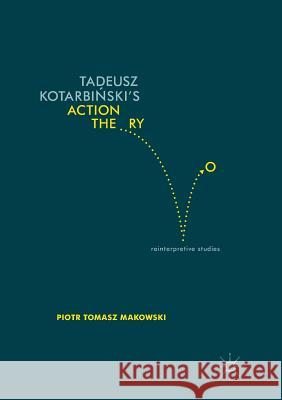Tadeusz Kotarbiński's Action Theory: Reinterpretive Studies » książka
topmenu
Tadeusz Kotarbiński's Action Theory: Reinterpretive Studies
ISBN-13: 9783319820231 / Angielski / Miękka / 2018 / 244 str.
Kategorie BISAC:
Wydawca:
Palgrave MacMillan
Język:
Angielski
ISBN-13:
9783319820231
Rok wydania:
2018
Wydanie:
Softcover Repri
Ilość stron:
244
Waga:
0.31 kg
Wymiary:
21.01 x 14.81 x 1.37
Oprawa:
Miękka
Wolumenów:
01
Dodatkowe informacje:
Wydanie ilustrowane











